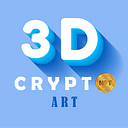Building the Foundation: Exploring the Infrastructure Behind NFT Marketplaces
NFTs, or Non-Fungible Tokens, have overtaken the world in recent years. These unique digital assets, which are built on blockchain technology, have made it possible to tokenize a wide variety of items, from artwork to sports memorabilia to virtual real estate. As interest in NFTs continues to grow, so too does the need for a robust NFT marketplace infrastructure. If you want to know more, keep reading and be a part of our community at Discord!
An NFT marketplace is a platform that allows users to buy, sell, and trade NFTs. There are several key components that make up a successful NFT marketplace infrastructure:
- Blockchain Technology: The foundation of any NFT marketplace is blockchain technology. A blockchain is a decentralized, distributed ledger that records all transactions made on the network. Each NFT is a unique digital asset that is created and verified on the blockchain, ensuring that it is one-of-a-kind and cannot be replicated or duplicated.
- Smart Contracts: Smart contracts are self-executing programs that are built on top of the blockchain. They allow for the creation and management of NFTs, including the transfer of ownership and the distribution of royalties. Smart contracts are essential to the functioning of an NFT marketplace, as they provide a secure and transparent way to manage transactions.
- User Interface: The user interface (UI) is part of the NFT marketplace that users interact with. A well-designed UI is critical to the success of an NFT marketplace, as it can greatly impact the user experience. A good UI should be intuitive, and user-friendly, and provide users with easy access to the features and functionality of the platform.
- Payment Gateway: An NFT marketplace needs a reliable and secure payment gateway to facilitate transactions. Payment gateways allow users to buy and sell NFTs using a variety of payment methods, including cryptocurrency, fiat currency, and credit cards. The payment gateway should be integrated with the platform’s smart contract system to ensure that transactions are processed quickly and securely.
- Security: Security is of utmost importance in any NFT marketplace. The blockchain provides a high level of security, but additional measures are necessary to protect users’ assets and data. The platform should have robust security features, including multi-factor authentication, encryption, and regular security audits.
- Community: A strong community is vital to the success of an NFT marketplace. The platform should provide users with a way to connect and collaborate with each other, such as through social media channels or forums. The community should be actively engaged and provide feedback to the platform’s developers to help improve the platform.
In conclusion, NFTs have created a new market for digital assets, and the need for a robust NFT marketplace infrastructure is essential to their success. A well-designed NFT marketplace should provide users with a secure and transparent platform for buying, selling, and trading NFTs, and should be supported by a strong community of users. With the right infrastructure in place, the potential for NFTs is limitless, and they could become a significant asset class in the future.
Do you have any further questions? Let us know in the comments below or DM us on Instagram!
